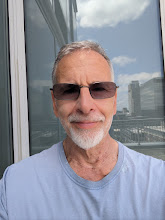| Public domain via Wikimedia Commons |
Tuesday, November 5, 2013 Alex in Wonderland gets curiouser and curiouser. A-Rod v. B-Sel.
Now comes this:
Reports of a Positive Test in 2006 Call Rodriguez’s Words Into Question
By MICHAEL S. SCHMIDT
Published: November 4, 2013 The New York Times
Alex Rodriguez tested positive for a banned stimulant in 2006, the first year Major League Baseball tested for the substance, according to two people with knowledge of the drug testing results. The positive test raises questions about public statements Rodriguez has made in connection with the use of performance-enhancing drugs.
The people spoke on condition of anonymity because they did not want to be identified while discussing drug testing results that are supposed to remain secret.
_____________________________________
Who are these people? I understand the whole protecting sources thing but there is no indication as to whose camp leaked. That's critically important in this case. If this were a political story, the writer might provide that information: a high White House source, a Pentagon official, etc. Sports writers do not seem so inclined.
In the Rodriguez case there are three basic possible sources:
1. Camp of Allen Huber "Bud" Selig (B-Sel), commissioner of the Major Baseball League (MBL)
2. Rodriguez camp
3. other.
Since the information is damaging to Rodriguez , the obvious suspicion is that Selig is the source of the leak. However, not to be discounted is the Machiavellian possibility that Rodriguez leaked in order to establish a basic reason for the arbitrator to summarily overturn his suspension. This seems unlikely, especially since there has been no such request so far from Rodriguez.
If Selig is the source of the leak after all the allegations by Rodriguez of misconduct by the MBL, including systematic leaks for several months, then asking the arbitrator for a dismissal of the suspension without even bothering to evaluate the merits of the MBL allegations would seem warranted.
Since the source information is supposed to be secret, the only way for Selig to get it before the the arbitrator is public disclosure outside the hearing. In other words, Selig might attempt to influence the arbitrator from an independent source, in this instance The New York Times, which would seem unimpeachable.
Not that I think that Selig himself is anywhere near clever enough for this but his hired guns might be. The Times of all publications should understand the nature of what is happening and not simply be a conduit for one side.

No comments:
Post a Comment